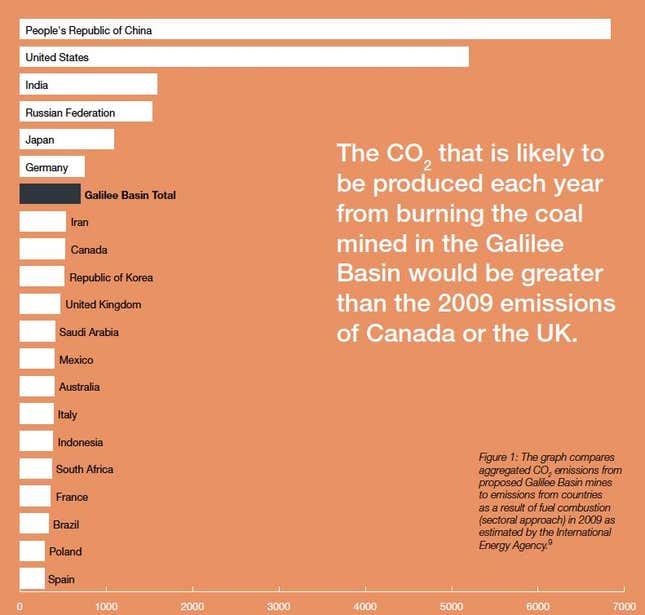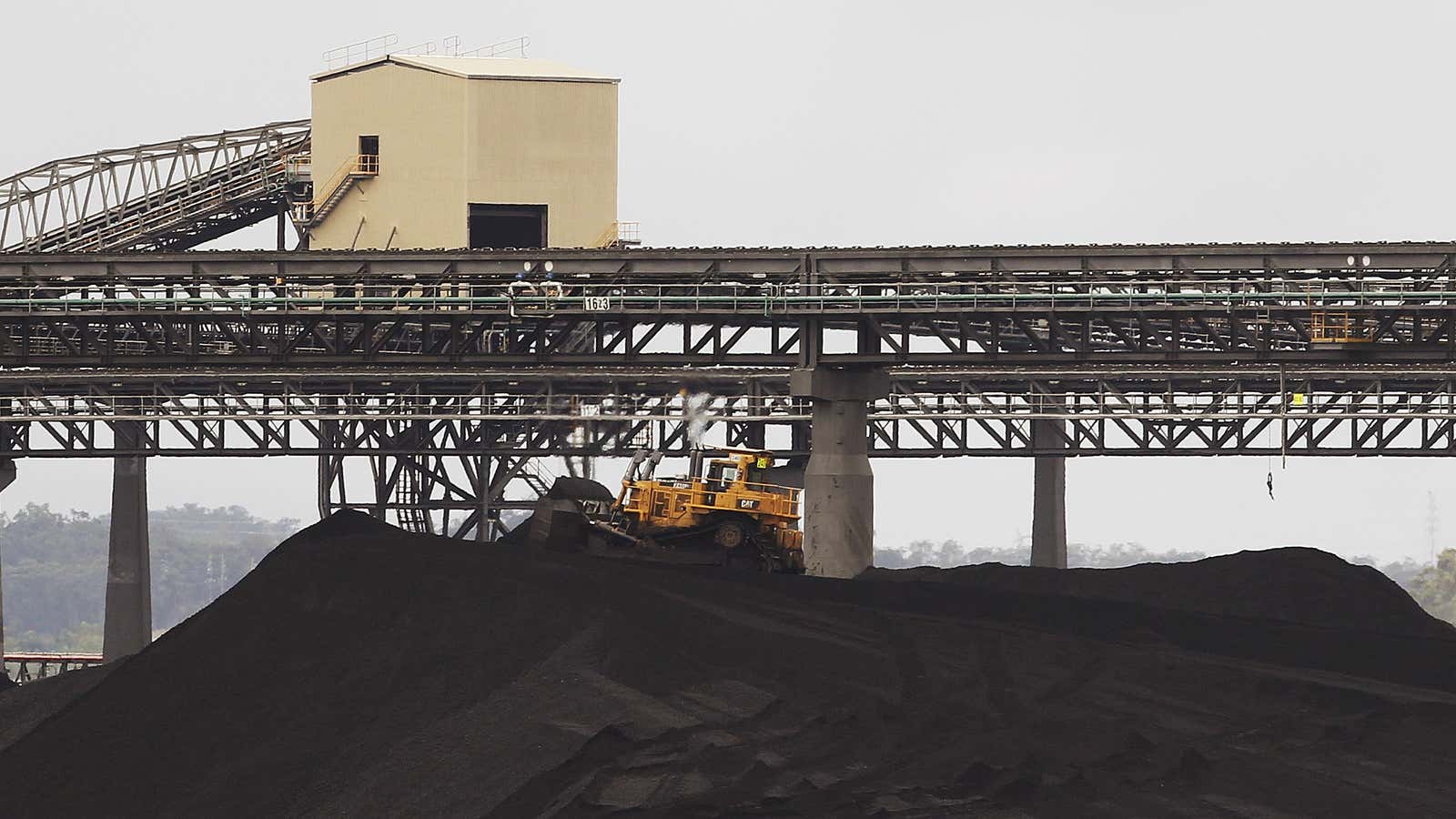Climate-change debates often focus on how to cut the carbon spew of particular countries—China and the US above all. But another way to do such carbon accounting is to look at individual fossil-fuel projects. All it takes is single massive coal mine to outstrip the CO2 emissions of many countries.
As the Guardian’s Graham Readfearn detailed yesterday, two controversial coal mines in the Australian state of Queensland would emit nearly 125 million tonnes of carbon dioxide equivalent (MtCO2e) annually. (Those emissions, based on court documents and environmental impact statements Readfearn obtained, include the actual burning of the coal as well as emissions associated with its extraction.) The Australian government has approved the two projects, which remain mired in litigation brought by opponents of the mines.
To put that number in perspective, that’s a bigger carbon spew than Vietnam, Uzbekistan or Iraq. And altogether, there are nine proposed coal mines for the Galilee Basin in central Queensland. A 2012 report by Greenpeace calculated that if all the projects came online they would emit 705 MtCO2e a year and rank as the seventh-largest carbon emitter in the world, right behind Germany and ahead of Iran, Canada, South Korea, and the UK.

Most of that coal most likely would be destined for China and India. By comparison, Australia itself emitted 402 MtCO2e in 2010, so the Galilee Basin project would nearly double that. “The Galilee Basin at maximum production would produce more coal than the entire projected global increase in demand for coal for electricity generation until after 2030,” the report states.
Slackening demand for coal—if, say, China follows through on plans to clamp down on the coal-fired power plants responsible for its catastrophic air pollution—would, of course, change the economics of those mines. But the new conservative government of Australia doesn’t seem inclined to think too hard about the environmental impact of such projects. Prime minister Tony Abbott has pledged to scuttle the carbon tax imposed by the previous Labor government and is declining to send a cabinet member to attend the United Nations climate talks that begin in Warsaw next week.




